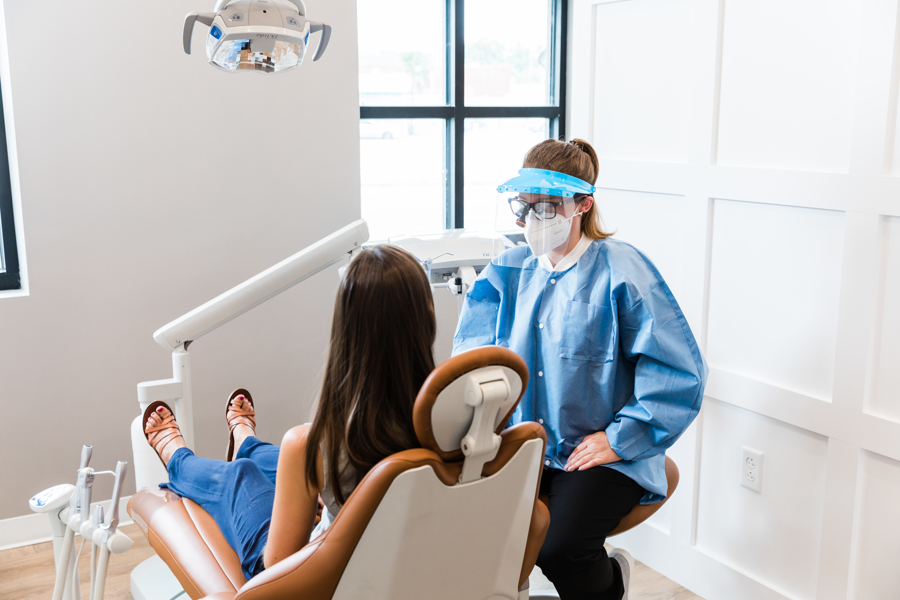An Overview to Typical Dental Problems That Need a Dental expert's Treatment
Recognizing the series of oral problems that require professional care is extremely important for preserving ideal oral health and wellness. Toothaches, for instance, can be symptomatic of severe problems such as dental caries, broken teeth, or abscesses, each calling for specific treatments like dental fillings or root canals. Periodontal illness, from the very early phases of gingivitis to much more severe periodontitis, highlights the value of regular dental check-ups and cleansings. Affected knowledge teeth and jaw disorders can present significant discomfort and issues. Making certain timely visits to the dental professional can reduce these issues efficiently, yet just what are the indicators and therapies included?
Toothaches
Toothaches are a typical oral problem that can range from light pain to serious discomfort, typically indicating a hidden issue that needs professional attention. This pain can come from a selection of resources, including tooth decays, broken or fractured teeth, and dental abscesses. Each of these conditions presents significant risks if left without treatment, potentially resulting in more severe problems.
Dental tooth cavities, likewise recognized as cavities, are caused by the accumulation of plaque that deteriorates tooth enamel, leading to holes or pits in the impacted teeth. Abscesses are agonizing infections at the root of a tooth or between the gum and a tooth, normally resulting from extreme degeneration or without treatment dental caries.
Reliable treatment of toothaches entails dealing with the source. This might consist of dental fillings for dental caries, crowns for split teeth, or root canals and prescription antibiotics for abscesses. Early treatment by an oral professional can stop more deterioration and reduce discomfort, making sure ideal oral wellness.
Gum Condition

The primary root cause of gum disease is bacterial plaque, a sticky, anemic movie that continuously bases on teeth. Poor dental hygiene, cigarette smoking, hereditary predisposition, and particular clinical problems, such as diabetic issues, can exacerbate the threat of establishing periodontal condition. Routine oral examinations are critical for very early detection and monitoring of this condition.
Therapy for gum condition ranges from specialist dental cleansing and scaling to more sophisticated procedures like origin planing and periodontal surgical treatment, depending upon the severity. Preserving good oral health practices, consisting of brushing two times daily, flossing, and using a disinfectant mouthwash, can significantly lower the risk of periodontal illness and advertise healthier periodontals.
Dental Caries
Cavities, also called oral caries, are a typical oral problem characterized by the damage of tooth enamel as a result of acid-producing bacteria in the mouth. These bacteria grow on sugars and starches from food and drinks, producing acids that gradually deteriorate the enamel, bring about cavity development.
Early-stage tooth cavities might not show symptoms, however as they progress, they can create tooth pain, sensitivity to warm or cold, visible holes or pits in the teeth, and staining. If left neglected, tooth cavities can penetrate much deeper layers of the tooth, possibly causing severe pain, infection, and also tooth loss.
Protecting against cavities entails a mix of great dental health practices and nutritional habits. Routine brushing with fluoride tooth paste, flossing, and routine oral examinations are important. Dental experts might additionally recommend additional safety nets, such as fluoride treatments and oral sealers, to secure teeth from degeneration.
Treatment for tooth cavities depends on their seriousness. Minor cavities can be addressed with dental fillings, which bring back the tooth's structure. Much more sophisticated situations might require crowns or perhaps origin canal treatment if the decay has actually gotten to the tooth's pulp. Prompt intervention by a dental professional is essential to stop difficulties and preserve total oral health and wellness.
Impacted Knowledge Pearly Whites
Affected wisdom teeth are a common oral concern that happens when the 3rd molars, generally referred to as wisdom teeth, fall short to totally emerge or straighten correctly within the mouth. This condition often arises from insufficient room in the jaw or an abnormal growth angle of the teeth. Influenced knowledge teeth can cause a range of issues, consisting of damage, pain, and infection to nearby teeth.
When wisdom teeth come to be affected, they are frequently partially erupted or remain entirely beneath the periodontal line. This partial eruption can develop a pathway for microorganisms to enter the periodontals, causing infections that manifest as swelling, discomfort, and even high temperature (dentist in eugene oregon). In addition, impacted wisdom teeth can exert stress on surrounding teeth, possibly triggering crowding or moving
A detailed oral assessment, normally involving X-rays, her comment is here is necessary for identifying influenced wisdom teeth. Regular oral examinations are a good idea to keep track of the condition and preserve dental wellness.
Jaw Conditions
Final Thought

Dental cavities, additionally recognized as cavities, are triggered by the accumulation of plaque that wears down tooth enamel, leading to holes or webpage pits in the affected teeth. Abscesses are unpleasant infections at the root of a tooth or in between a tooth and the gum, typically resulting from extreme degeneration or without treatment cavities.
Impacted knowledge teeth are a prevalent oral concern that occurs when the 3rd molars, commonly referred to as knowledge teeth, fail to completely arise or straighten effectively within the mouth. Affected wisdom teeth can lead to a variety of issues, consisting of infection, discomfort, and damage to surrounding teeth.
Additionally, influenced knowledge teeth can put in pressure on bordering teeth, possibly triggering crowding or changing.